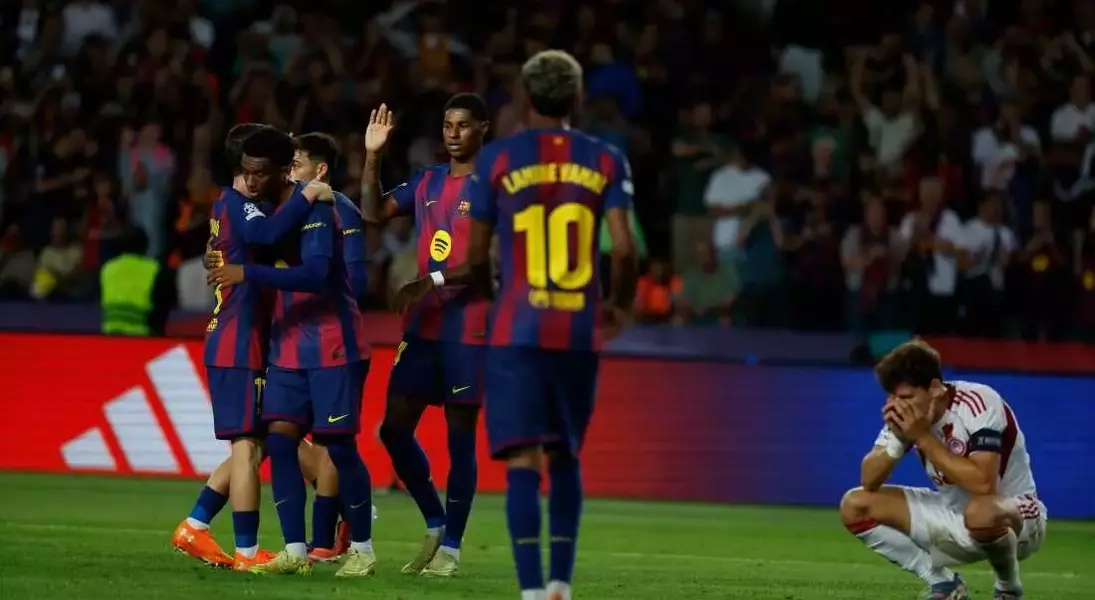
The Spanish football league recently announced the cancellation of a highly anticipated regular-season match between Barcelona and Villarreal, which was scheduled to take place in Miami. This decision, made in light of growing opposition within Spain, marks a significant setback for the league's international expansion efforts. Despite earlier approvals from key football organizations such as UEFA and the Spanish federation, the initiative faced considerable pushback from various stakeholders, including players, several clubs, and fans. The league had hoped this game would be a crucial step in strengthening its global presence and securing new revenue streams, particularly in the strategic U.S. market. The promoter, Relevent, also acknowledged that insufficient time remained to organize an event of such magnitude, making it irresponsible to proceed with ticket sales.
The plan to host a La Liga match outside Spain had been a contentious issue for weeks, generating considerable debate within the Spanish football community. Players, in particular, voiced their dissent, staging silent protests during weekend league games by momentarily pausing after kickoff. This collective action highlighted their concerns regarding the fairness and integrity of the competition if regular-season matches were moved to international venues. Real Madrid, a prominent voice against the proposal, argued that such a move would disrupt the competitive balance, emphasizing the unique challenges and advantages of playing home and away fixtures. Thibaut Courtois, Real Madrid's goalkeeper, publicly criticized the league president, Javier Tebas, and expressed frustration over attempts to censor these protests during broadcasts.
Despite the widespread opposition, both Barcelona and Villarreal had initially expressed support for the Miami fixture. Villarreal had even offered incentives to its fans, including free travel to the match and significant discounts on season tickets for those who chose not to attend. Barcelona, while respecting the league's final decision, conveyed its disappointment over the missed opportunity to enhance the competition's global image and generate resources. The club also extended its regrets to its American fanbase, who would now be unable to witness an official league match on home soil. The league itself underscored the strategic importance of such initiatives in an increasingly competitive global sports landscape, where other major leagues like the Premier League and the UEFA Champions League are actively expanding their reach and revenue capabilities.
The partnership between La Liga and Relevent Sports, part of Stephen Ross's diverse portfolio which includes major sports franchises and events in Miami, was central to these international ambitions. The initial push for the Miami game gained momentum after FIFA withdrew from a legal challenge brought by Relevent in a New York court. This development had prompted FIFA to review its regulations and establish a working group, including UEFA lawyers, to re-evaluate policies concerning international league matches. However, the domestic resistance ultimately proved too strong to overcome, forcing the league to reconsider and ultimately cancel the plans. The league reaffirmed its commitment to exploring future opportunities for global growth, aiming to promote an open, modern, and competitive vision for Spanish football that benefits all stakeholders.
The cancellation of the Barcelona-Villarreal match in Miami underscores the complex challenges and varying perspectives involved in internationalizing domestic sports leagues. While the Spanish league recognized the potential for significant revenue generation and enhanced global visibility, the strong objections from players, clubs, and fans within Spain highlighted the importance of preserving the traditional competitive structure and integrity of the league. This decision reflects a balancing act between commercial expansion and the core values of the sport, ultimately prioritizing the concerns of its immediate stakeholders. The league's stated commitment to continued global outreach suggests that while this particular initiative was thwarted, the pursuit of international growth remains a long-term objective, albeit one that will require careful navigation of domestic sentiment and stakeholder interests.
